Share
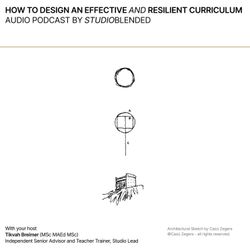
Latest episode
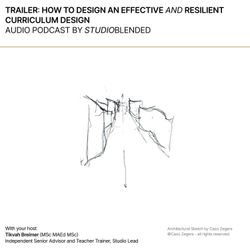
Trailer How to design an effective and resilient curriculum
03:44|Teacher training in effective and resilient curriculum design. Curious? https://www.studioblended.com/audio-podcast
More episodes
View all episodes
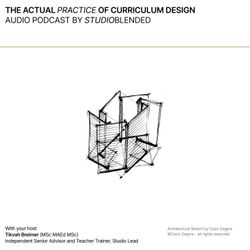
The actual practice of curriculum design
21:02|Today we delve into the actual practice of curriculum design.Part I: The start of every sound teacher training: unlearn to go by intuition and emotion. Ensure a robust fundament with technique and pedagogy.Part II: What curriculum is, and what learning design is.Part III: Become aware of this fascinating organ, the brain – how does it learn best, how does it remember, how are lasting memories and deep understanding created – by design?Part IV: Get into a new routine, and skill yourself to design well.Go to StudiOpedia for the full transcript. https://www.studioblended.com/Audio-Podcast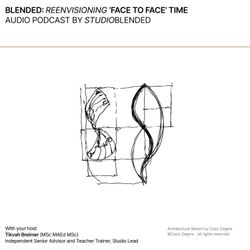
Blended: reenvisioning 'face to face' time
20:04|Where to begin, to design with a blended approach?Today's special edition episode is all about the premium time that face to face has become in education, and how you can use it, to design with qualitative guidelines of flexibility and accessibility, and pedagogy unique for your content.You need a bespoke approach.Allow this episode to bring you simplicity.Find the full transcript at Studiopedia https://www.studioblended.com/Audio-Podcast. It includes relevant literature to allow you to take this further.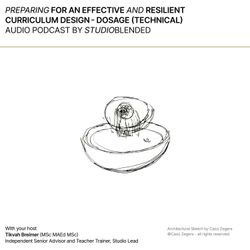
Preparing Clip A: dosage (technical effectiveness)
22:12|The episode comes in two clips: A dosage (technical effectiveness) B slow productivity (human resilience), the transcript is combining bothIn this episode, we tackle the problem over so-called ‘overload’ in terms of content in your curriculum. Perhaps to your surprise, we will link it directly to how you prepare for the content in your curriculum design, whether it is a module, course, training or a degree.Discover the 'why' of overload, why it happens in the first place.Expect a body-brain approach to 'dosage' of your content.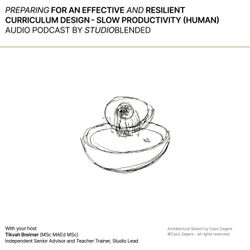
Preparing Clip B: slow productivity (human resilience)
13:17|In this episode, we tackle the problem over so-called ‘overload’ in terms of content in your curriculum. Perhaps to your surprise, we will link it directly to how you prepare for the content in your curriculum design, whether it is a module, course, training or a degree. We go even beyond that: with technique - you can design for your own human resilience during preparation; your balance, your enjoyment of the simplicity in curriculum design.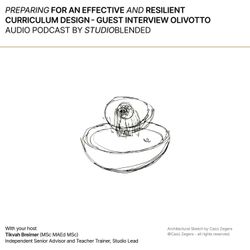
Guest interview Veronica Olivotto, PhD candidate New York New School
05:37|What is it like to prepare for a curriculum design? Guest interview PhD candidateFind our own training in Clip A and B. For our guest interviews, we looked for broad inspiration from New York and Naples.Veronica Olivotto speaks of 'slow productivity' and what it’s like to write-up a PhD thesis after fieldwork. Her authentic contribution and voice has rich ingredients, including the experience of being alone, procrastination, verbalizing/oral culture vs. writing, un-writing, re-writing, discipline, daring to be imperfect, finding resonance in people/community, and the courage to begin, by also seeing ‘thinking’ as a form of ‘doing’.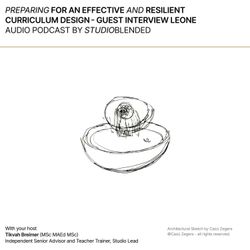
Guest interview Assoc prof Mattia Leone, coordinator European Master, Naples
21:43|What is it like to prepare for a curriculum design? Guest interview with an Erasmus+ program coordinatorFind our own training in Clip A and B. For our guest interviews, we looked for broad inspiration from New York and Naples.Associate professor Mattia Leone gives a lively and inspiring solo-talk about his lived-experience with designing and piloting an entire blended master degree at European level.There is so much out there in your field - content, networks, projects - how to choose what goes in to a degree - and what stays out?